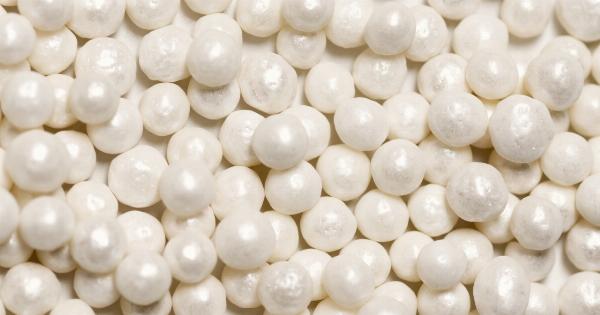Calcium is a vital nutrient for our bodies, especially our bones. It is essential for bone growth and development, as well as maintaining bone mass.
However, certain beverages that we regularly consume can negatively impact our bone health by robbing our bones of calcium.
The Role of Calcium in Our Body
Calcium is the most abundant mineral in our body and is crucial for various physiological processes, including blood clotting, nerve function, and muscle contraction.
However, the majority of calcium in our body (about 99%) is stored in our bones and teeth.
Bone is a dynamic tissue that is continuously being remodeled to maintain its strength and shape. The process of bone remodeling involves two types of bone cells: osteoblasts (which build new bone) and osteoclasts (which break down old bone).
Calcium plays a significant role in this process by providing the raw material for bone formation.
Therefore, getting enough calcium through our diet is essential for our bone health. However, certain beverages can interfere with calcium absorption and lead to calcium loss from our bones.
The Surprising Beverage That Can Rob Your Bones of Calcium
You might be surprised to learn that one of the most popular beverages worldwide can rob your bones of calcium. That beverage is none other than caffeinated drinks, such as coffee, tea, and soda.
Caffeine is a natural stimulant found in coffee, tea, and soda. It is known to increase alertness and stimulate the central nervous system. However, caffeine can also negatively impact our bone health by interfering with calcium absorption.
Research has shown that caffeine intake can lead to a loss of calcium from our bones. This is because caffeine increases the amount of calcium excreted in urine.
In fact, for every 100 milligrams of caffeine consumed, about 6 milligrams of calcium are lost from our bones.
The Importance of Calcium Absorption
In addition to calcium intake, calcium absorption is crucial for maintaining bone health.
The amount of calcium absorbed into our bodies depends on several factors, including the form of calcium, the amount of calcium consumed, and other nutrients consumed along with calcium.
Calcium comes in many forms, including calcium carbonate and calcium citrate. Calcium carbonate is the most common form of calcium found in supplements, while calcium citrate is often used in fortified foods.
The form of calcium can affect its absorption rate, with calcium citrate being the better-absorbed form of calcium.
Other nutrients that improve calcium absorption include vitamin D, magnesium, and phosphorus. Vitamin D is essential for calcium absorption, as it helps regulate calcium levels in our blood.
Magnesium and phosphorus are also essential for bone health and can improve calcium absorption when consumed along with calcium-rich foods.
How to Mitigate the Negative Effects of Caffeine on Calcium
If you are a frequent consumer of caffeinated drinks, you may wonder how to mitigate the negative effects of caffeine on your bones. Here are some tips:.
1. Limit Your Caffeine Consumption
The easiest way to reduce the negative effects of caffeine on your bones is to limit your caffeine consumption. The recommended daily intake of caffeine is 400 milligrams for adults, which is about four cups of coffee.
However, even smaller amounts of caffeine can negatively impact your bone health.
2. Choose Calcium-Rich Beverages
If you must consume caffeinated drinks, choose beverages that are also rich in calcium. Some examples include milk, fortified orange juice, and almond milk. These beverages can help offset the negative effects of caffeine on your bones.
3. Consume Calcium Supplements
If you struggle to get enough calcium through your diet, consider taking a calcium supplement. Calcium supplements come in many forms, including calcium carbonate and calcium citrate.
4. Ensure Adequate Intake of Vitamin D, Magnesium, and Phosphorus
As mentioned earlier, vitamin D, magnesium, and phosphorus are essential for calcium absorption and bone health. Ensure that you are consuming enough of these nutrients through your diet or by taking supplements.
Conclusion
Calcium is a vital nutrient for our bone health, and getting enough calcium through our diet is crucial. However, certain caffeinated drinks, such as coffee, tea, and soda, can negatively impact our bone health by robbing our bones of calcium.
To mitigate the negative effects of caffeine, limit your caffeine consumption, choose calcium-rich beverages, consume calcium supplements, and ensure adequate intake of other essential nutrients like vitamin D, magnesium, and phosphorus.































